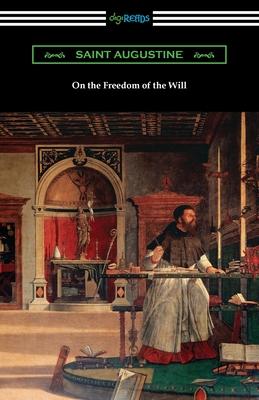Written in the late 4th century, "On the Freedom of the Will" by Saint Augustine is the important and influential treatise exploring the existence of God, the meaning of free will, and the definition of truth. Saint Augustine, or Augustine of Hippo, was born in 354 in the Roman province of Numidia, in what is now modern-day Algeria. He followed several religions before converting to Christianity in 386 and became one of the most significant early founders of the Christian faith. Saint Augustine wrote several influential and philosophical books on divine grace, faith, original sin, confession, the Holy Trinity, and other important doctrines of the Church. In "On the Freedom of the Will", he examines the importance of free will and contends that the root of all sin is in the choice made by man to hurt others or go against God's divine plan. Saint Augustine rejects the Greek philosophy that people were not to be blamed for things done in ignorance and instead argues that evil is a choice made with free will. It is only by choosing to do good and seeking to follow God's will that one can live without sin. This edition follows the translation of Carroll Mason Sparrow. This edition is printed on premium acid-free paper.

Written in the late 4th century, "On the Freedom of the Will" by Saint Augustine is the important and influential treatise exploring the existence of God, the meaning of free will, and the definition of truth. Saint Augustine, or Augustine of Hippo, was born in 354 in the Roman province of Numidia, in what is now modern-day Algeria. He followed several religions before converting to Christianity in 386 and became one of the most significant early founders of the Christian faith. Saint Augustine wrote several influential and philosophical books on divine grace, faith, original sin, confession, the Holy Trinity, and other important doctrines of the Church. In "On the Freedom of the Will", he examines the importance of free will and contends that the root of all sin is in the choice made by man to hurt others or go against God's divine plan. Saint Augustine rejects the Greek philosophy that people were not to be blamed for things done in ignorance and instead argues that evil is a choice made with free will. It is only by choosing to do good and seeking to follow God's will that one can live without sin. This edition follows the translation of Carroll Mason Sparrow. This edition is printed on premium acid-free paper.